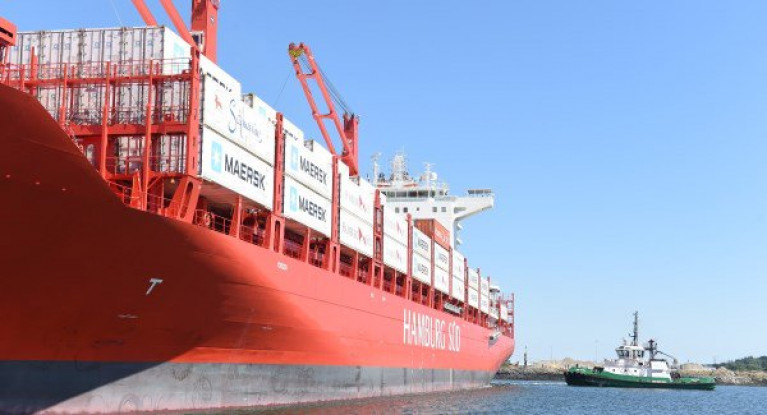Displaying items by tag: Supply Chains
TEN-T Policy Must Recognise Essential Role Ports Play in New Energy Supply Chains - ESPO
The European Parliament’s Transport Committee is preparing its position on the TEN-T Commission proposal of 14 December 2021. More than 1800 amendments are on the table of the negotiators.
The European Sea Ports Organisation (ESPO) welcomes the more than 40 amendments tabled by six different political groups pleading for a new assessment of the importance of Europe’s ports in the TEN-T network in order to reflect the current and future role of ports in the supply of new energies.
Up to now, ports are considered part of the “TEN-T club” if they move enough tonnes and/or TEU. While throughput is still a valid criterion to measure the importance of ports, ESPO believes it is time to also take into account the crucial role ports play as hub in the green transition and Europe’s security of energy supply. The new energies are of importance for Europe and the related supply chains (such as hydrogen, wind, etc.) are more important in terms of volumes and space needed than fossil energies and fuels. They also come with specific transport needs, infrastructure and connectivities, storage and new supply chains.
Therefore, by counting only tonnes in ports, the TEN-T policy would risk to ignore the importance of ports in building and strengthening the supply chain for the new energy landscape.
ESPO welcomes in that respect the position taken by the Council on 5 December last year, as expressed in their General Approach.
Following the Council, on top of the current volume criterion (0.1% of the EU total volume of port cargo), a port can also be part of the comprehensive network if “its total annual cargo volume (bulk and non-bulk) exceeds 500.000 tonnes AND its contribution to the diversification of EU energy supplies and to the acceleration of the roll-out of renewable energies is one of the main activities of the port”.
The Council is thus clearly recognising this new role of ports and the importance of having these ports as nodes of the future TEN-T network.
ESPO hopes that this idea – as reflected already in the many amendments tabled – will also be part of the compromise agreement of the European Parliament.
“Realising and accelerating the energy transition is a top priority for Europe. It is important to understand that the energy transition has a maior impact on supply chains, connectivities and transport infrastructure. Europe’s ports are central and essential players in the new energy supply chains. And they are making this energy transition happen. It is important to translate this role and the new realities into the TEN-T policy and make sure that these ports that are instrumental in the supply of new energies are part of the network. By only counting tonnes we will not achieve this”, says ESPO’s Secretary General Isabelle Ryckbost.
Other points are of importance to Europe’s ports.
With regards to the rail requirements agreed in the Council, ESPO believes that further steps can be made to ensure a better last mile connectivity to ports while respecting the specificity of port-rail systems. The complexity of rail infrastructure and heterogeneity of its governance inside European ports makes it necessary to adopt the roll-out of rail requirements accordingly.
Finally, ESPO welcomes the reference made to pipelines both in the recitals of the agreed Council text as well as in multiple amendments tabled by the Parliament. For Europe’s ports, pipelines will increasingly play an essential role in the implementation of Europe’s decarbonisation agenda and will be a necessary mode of transport for new energies.
The vote is expected to take place in April.
European ports remain committed to work with both the Commission, the Parliament and the Council in further explaining the role ports play and can play in TEN-T.
Playing its part is the Port of Cork which is ensuring that supermarket shelves are stocked, and that frontline workers’ vehicles have fuel during the Covid-19 pandemic.
A full schedule of deliveries has taken place this week at the Port to ensure supply chains keep moving across Munster.
The Port of Cork and it’s staff have been instrumental in ensuring that food and other essential items are continually available to consumers across Ireland during the Covid-19 pandemic.
This week alone, 1,550 containers passed through the port which included, among many other things, shipments of wine and pasta, four million bananas, and a multitude of other foodstuffs to be distributed by supermarkets.
More to report from EchoLive here.
























































